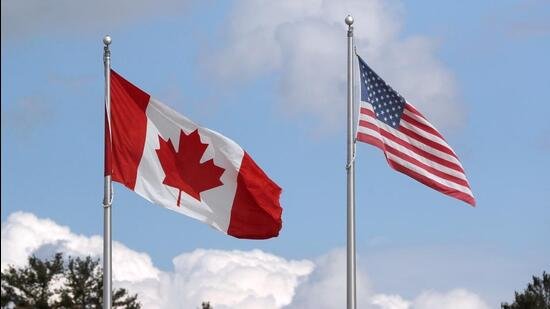For Canada, the United States of America was its next-door superpower friend and long-time ally. The US or its power was never a concern for Canadians until US President Donald Trump’s January tariffs against Ottawa, imposed under the ‘International Emergency Economic Powers Act,’ which designated Canada a “threat to the safety and security of Americans.” Canadians are particularly peeved at being called “threat to the safety and security of Americans”, and rightly so.

It doesn’t end there. Adding insult to injury, the US is now pursuing what amounts to a policy of annexation, demanding Canada becomes the 51st state of the US. So, the US is not only calling Canada a threat but openly challenging its sovereignty.
So, what changed? American power hasn’t: The US has been a superpower since the end of WWII and the sole superpower since the end of the Cold War. The reality of American power for Canada also remains unchanged. What has indeed changed for Canada is the American intentions towards Canada. The fact that in 2024 Ottawa spent only around CAD 30 billion while its big neighbour spent close to a trillion USD didn’t bother Ottawa. American power or the power differential between Canada and the US didn’t matter to Ottawa because it chose to view American power through America’s intentions. Now that the American intentions have changed, American power has started looking worrisome for Canada. Put differently, when Canada views American power through the lens of US intentions or aggressive policies, that power looks dangerous.
Let us take the example of India-China relations. Does China represent a threat to India? I will outline three scenarios to explain the ‘intentions vs capability’ argument in this context. One, assume, for the sake of argument, there are no historical India-China tensions and there is complete mutual peace. Should India focus on China’s capability or intentions in that situation? My answer: India must focus on China’s capability, and not its intentions.
In the second scenario, let’s assume that China’s intentions towards India are unclear, its economy is five times larger, and its defence expenditure exceeds India’s by a factor of three. So, even if China’s intentions towards India are unclear but its economic and military power is vastly superior to India, should India’s response focus on China’s intentions or power? I would say we must focus on Chinese power than Chinese intentions. Put differently, regardless of whether or not we are certain about China’s intentions towards India, India must remain vigilant about China’s state power and the power imbalance between the two nations.
In the third scenario, which indeed is the case today, let’s add China’s declared and demonstrated intentions into the mix. There is the history of the 1962 war, recent Chinese aggression against India on the Line of Actual Control, and the fact that China has been claiming Arunachal Pradesh and illegally occupies a part of Ladakh. In this situation, which presents both clear intentions and capabilities, what response should India adopt? Should India try to balance China or should India hope that Chinese intentions aren’t as bad or that they will change for the better? I will leave you to make up your mind.
The logic behind this line of reasoning is rather straightforward. A state’s intentions can change, but its power remains constant. This is what has happened between the US and Canada. If this could happen in one of the most trusted and non-threatening bilateral relationships in the world with more than a century of history to back it up, what guarantees would India have that a China that is “rising peacefully” (if you believe that claim) will always remain peaceful?
This is also a lesson learned the hard way by Europeans. For several decades, the Europeans believed that Russia had no aggressive intentions towards them, or that they could change Russia through trade even if Moscow had ill indentions. But the so called ‘Wandel durch Handel’ (change through trade) doctrine has apparently failed. What has changed is the Russian intentions (or the European views about Russian intentions), not the Russian power.
This is a universal dilemma, not just pertaining to Europe, Canada or India. India’s smaller neighbours would also be justified, in that sense, in looking at the size of Indian power and searching for options elsewhere to balance that power even if India were to exhibit perfectly friendly intentions towards them. It would make little sense for them to assume that Indian intentions would never change. It takes one leader (Trump in Canada’s case, and Putin in Europe’s case) to change a state’s intentions which can have potentially disastrous implications for the neighbouring countries.
There is no harm in focusing on one’s neighbour’s intentions but doing so by ignoring the consequences of its material power can be ruinous to one’s security. It is this simple logic of the ‘anarchic’ international system that Trump has managed to bring back into the conduct of international relations, in less than four months’ time. As the Latin saying goes Si vis pacem, para bellum (If you want peace, prepare for war).
Happymon Jacob teaches India’s foreign policy at JNU, and is editor, INDIA’S WORLD. The views expressed are personal.





